Mellow Thai flavors of coconut and lime permeate this creamy buttercup squash soup. A fantastic way to enjoy this lesser-known winter squash and its wonderfully sweet taste.

My journey with winter squash is kind of fun to look at if you filter through the archives of this site.
Ten years ago, I was exclusively cooking with the usual suspects like acorn, spaghetti and butternut. My favorite recipe from that time period is probably these spaghetti squash latkes.
As the years went on though, fun new varieties like kabocha and delicata started creeping into recipes. And more recently, honeynut, koginut and buttercup.
I can’t say I always agree with the “change is good” mantra but when it comes to winter squash, I do think it applies.
Today’s popular winter squash varieties and hybrids just taste so much better than the OGs.
Not to mention, they’re typically bred to a much easier to handle size and many of them even have edible skin.
Can I get an amen for that?! I don’t know about you but cutting a spaghetti squash feels jeopardizing to my fingers every single time.
I really got into buttercup squash last year but this year, I wanted to expand on its presence on this site.
That’s where this creamy delicious Thai inspired soup comes into play.
While I stand by roasting as the easiest and probably most popular way to enjoy the squash (or air frying because you can’t beat this air fried butternut squash), using buttercup to make a soup perfectly highlights all the best qualities of the squash.
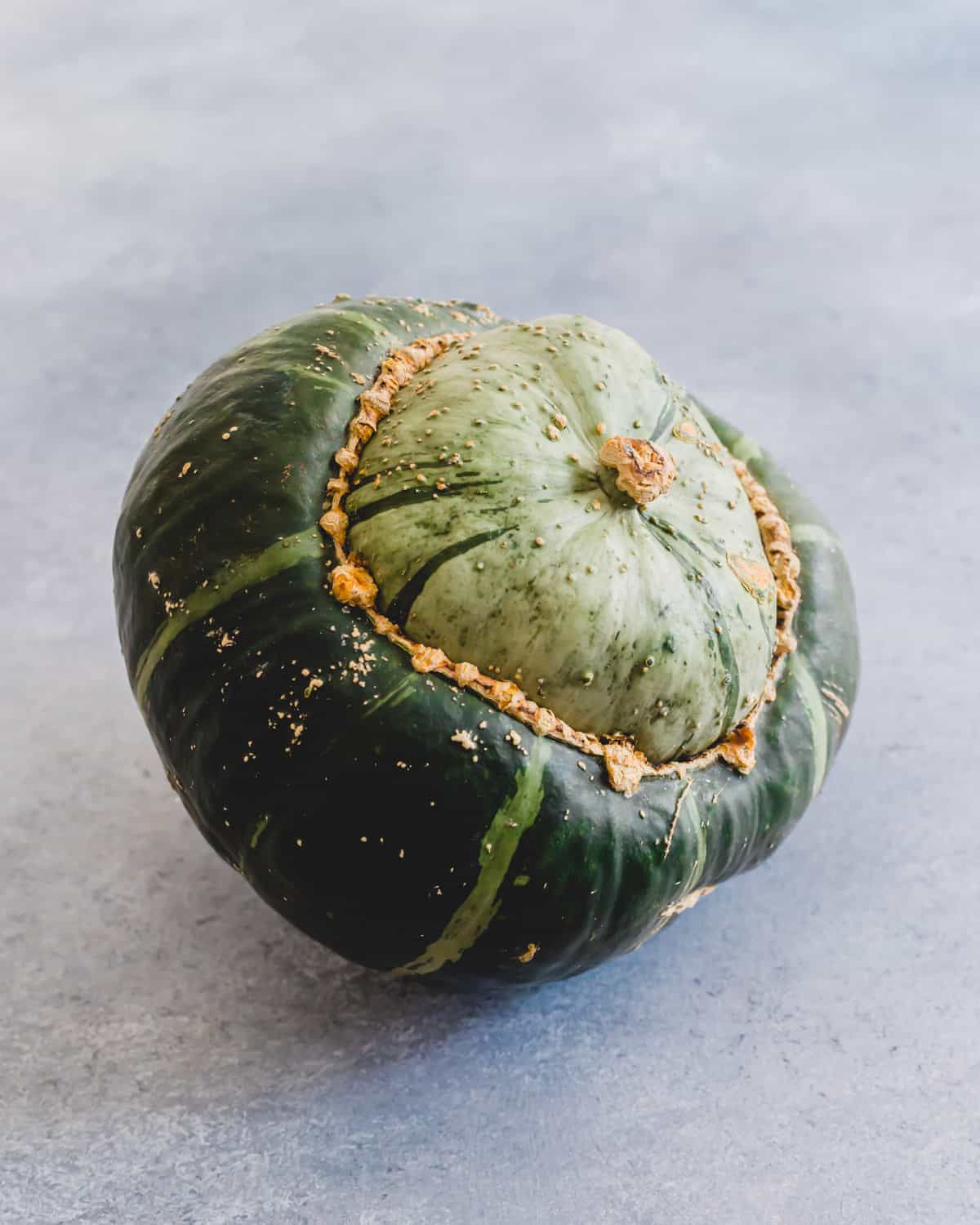
WHAT IS BUTTERCUP SQUASH?
I explained in detail all the characteristics of buttercup squash in this roasted buttercup squash recipe last year.
But to recap, buttercup is in the kabocha squash family and is becoming more and more accessible at normal grocery stores.
If you aren’t able to find it at your local market, try a farm stand or farmer’s market in the fall.
HOW DOES BUTTERCUP SQUASH TASTE?
The taste and texture of buttercup is really what sets it apart for me. It’s a wonderfully sweet mellow taste with an incredible smooth texture.
Smoother and less dry than kabocha squash with a sweetness not unlike honeynut squash.
APPEARANCE
Buttercup can be a little tricky in looks.
Oftentimes it will look like what you see here – a kabocha like squash with a lighter green dome and some bumps or “wart-like” looking nodes on the exterior. It’s very similar to turban squash in this regard although those are usually orange and yellow in color more so than green.
Other times though, it might look almost identical to kabocha and not have the lighter green dome at all. You can see that version in this buttercup squash story.
So pay attention to the labels at the market to know what in fact you’re buying.
WHAT’S THE DIFFERENCE BETWEEN BUTTERCUP AND BUTTERNUT SQUASH?
Since the names are so similar, this is a question often asked.
Buttercup squash has a lighter yellow flesh with a delicate sweet flavor. Butternut squash flesh is bright orange in color and also sweet in taste.
Appearance wise, however, these two winter squash look nothing alike.
Butternut is oblong in shape with a bulbous end and a pale yellow/beige skin whereas buttercup is round in shape with a dark green exterior and sometimes lighter green dome on the top.
I’ve made some fun recipes with butternut squash over the last decade. Two favorites that come to mind are these garlicky butternut squash noodles and this butternut squash dip with goat cheese.
Since the two taste very similar, they are good substitutes for each other in recipes. If you can’t find buttercup squash, feel free to make this soup with butternut.
IS IT OK TO EAT THE SKIN OF BUTTERCUP SQUASH?
Yes! One of the best parts of this squash is its edible skin, a characteristic it does not share with butternut.
I do find it easier to do with a squash that is all green and without the “nodes” on the exterior. The ones with the lighter green top and nodules on the outside aren’t as conducive to eating the skin.
If you do have a buttercup with nodules on it, just slice them off before cooking though and you should be fine.
This characteristic of edible skin is one of my favorite parts of delicata squash too. It’s why these stuffed delicata squash boats are a favorite this time of year too – you can eat the entire thing!
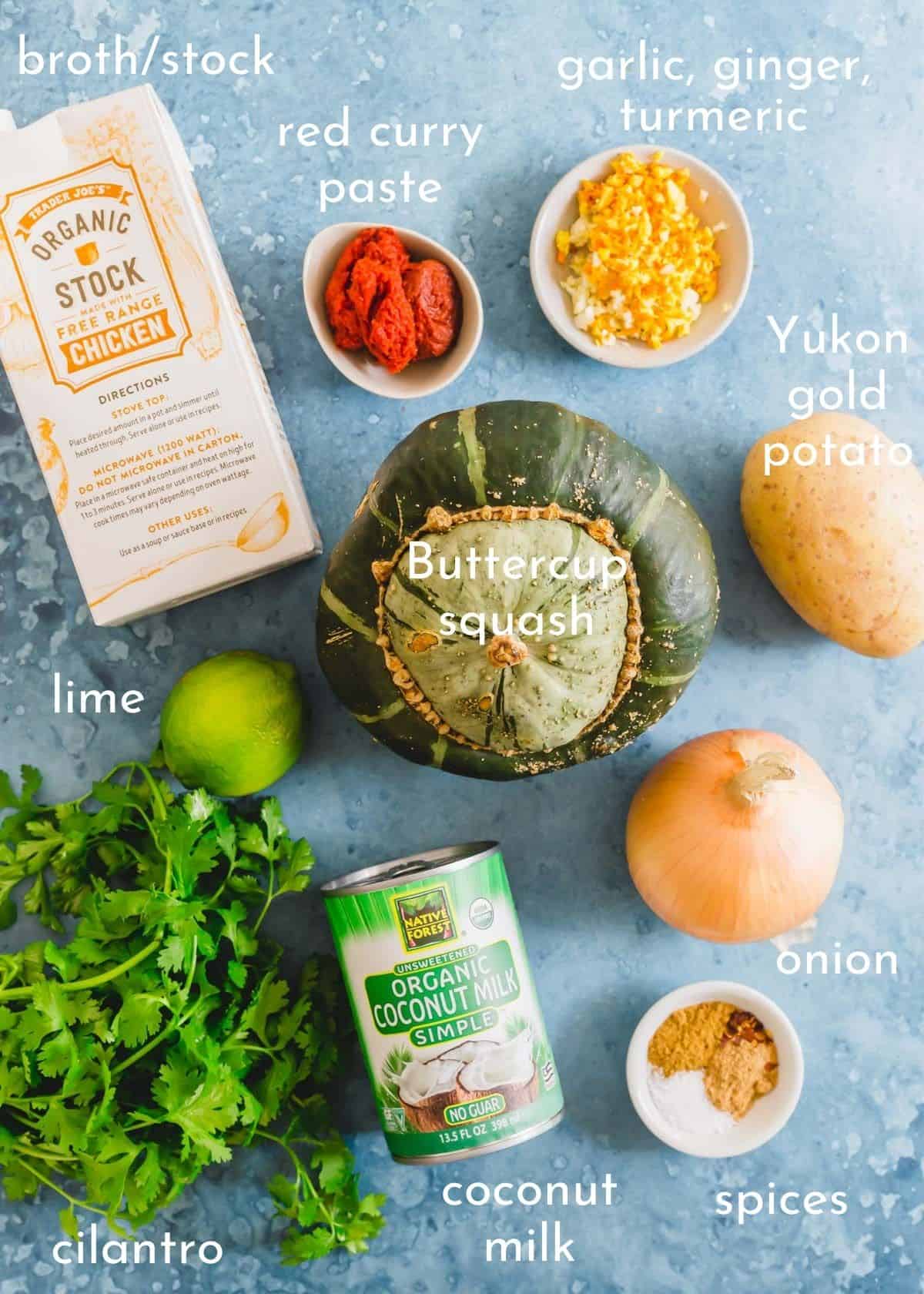
INGREDIENTS TO MAKE THAI BUTTERCUP SQUASH SOUP
Ok, now that we got the details of the squash out of the way, let’s talk about this amazingly creamy and cozy Thai inspired soup!
Here’s what you’ll need to make it:
- buttercup squash
- coconut oil
- onion
- garlic
- fresh ginger
- fresh turmeric
- red curry paste
- Yukon gold potato
- stock or broth (either veggie or chicken)
- spices
- coconut milk
- lime
- cilantro
Much like this creamy coconut delicata squash soup, the coconut milk brings a lovely textural smoothness to this soup.
But, we’re kicking things up a gear with the Thai flavors in this one by using red curry paste, ginger and turmeric.
And whereas that soup uses cauliflower for added creaminess and bulk, we’re using a Yukon gold potato, largely prized for its smoothness and creamy texture.
If you’re looking for another wonderful Thai inspired soup, try this red curry noodle soup too. Same flavor profile just in a slurp worthy heartier variation.
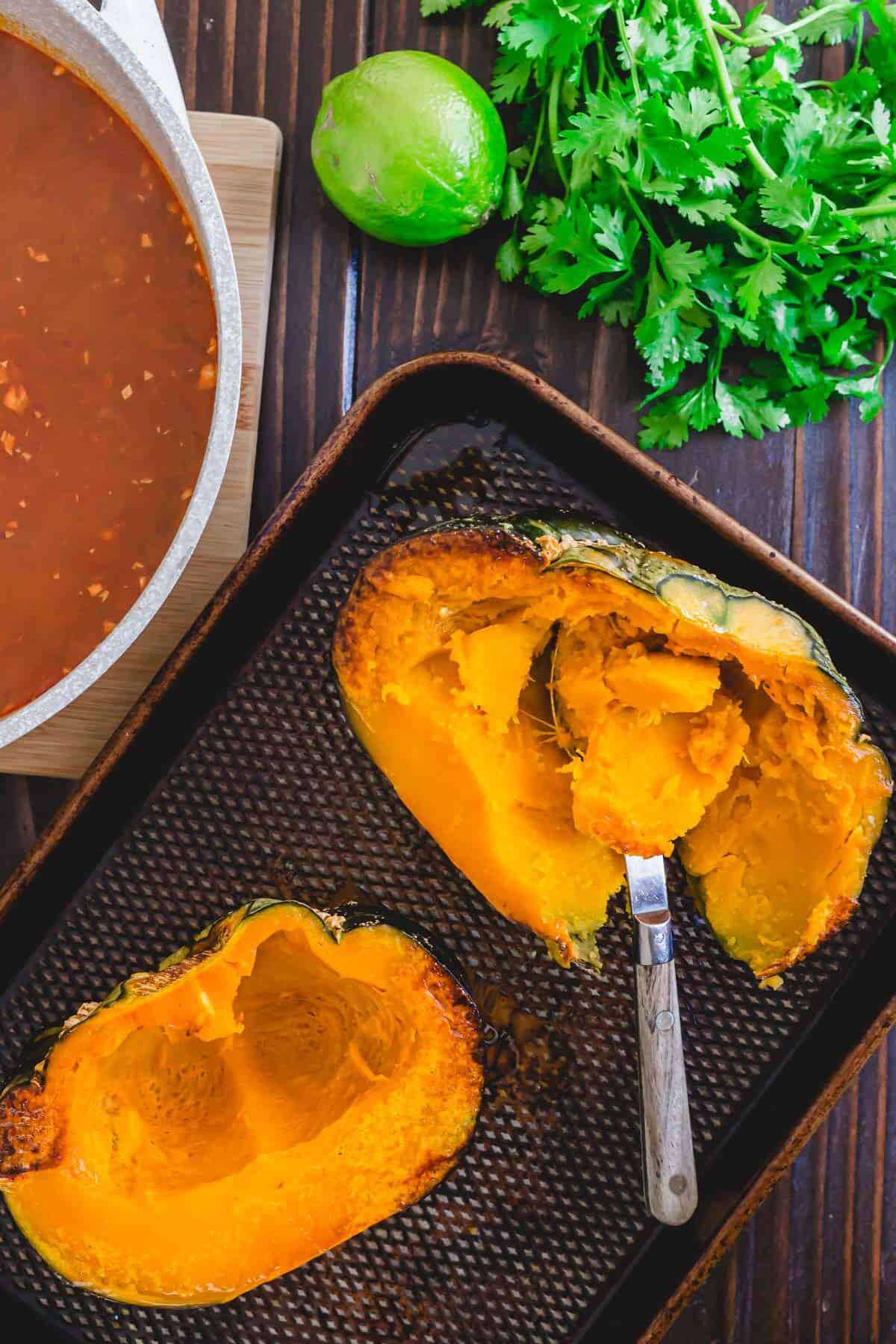
HOW TO MAKE BUTTERCUP SQUASH SOUP
Like I do for this creamy kabocha squash soup, we’re going to start by roasting the squash.
I chose this approach for two reasons:
1 – roasting brings out the flavor of the squash and its innate sweetness.
2 – it allows for the squash to be easily scooped away from the skin. Yes, the skin is edible on buttercup squash as I mentioned above but for the purpose of this soup (and it’s gorgeous orange/yellow color), we’re not going to use it in this recipe.
Start by preheating the oven to 400°F. Lightly grease a baking sheet and place the halved and seeded (don’t throw them away, make roasted squash seeds instead!) squash flesh side down on the pan. Roast the buttercup squash halves for 35-40 minutes until fork tender.
While the squash roasts, we’ll start the soup.
Add the coconut oil to a large pot or Dutch oven over medium heat. Once hot, place the onions in the pot and cook until softened, about 7 minutes.
Add the minced garlic, ginger and turmeric to the pot and cook for an additional minute until fragrant.
Next, add the red curry paste and spices and mix until well combined with the onion mixture.
Add the chopped potato and broth/stock then stir well.
Bring the mixture to a boil. Once boiling, reduce heat to a simmer, cover and cook for about 15 minutes until the potato is fork tender.
When the squash is done roasting, remove it from the oven and let cool for a few minutes until you can safely handle it. Scoop the flesh of the squash out into the pot and stir to combine.
Blend the soup by using either an immersion blender or transferring to a blender in batches.
Return the blended soup to the pot and pour in all but 1/4 cup of the coconut milk along with the juice of 1/2 a lime. Stir until well combined.
Serve the soup by ladling into bowls. Drizzle the remaining coconut milk on top of each bowl and swirl into the soup using a spoon or toothpick to create a visually appealing pattern.
Garnish with fresh cilantro, lime wedges from the remaining half of lime and coconut flakes as desired.

WHAT DOES THE SOUP TASTE LIKE?
I’ve said it before and I’ll say it again, Thai cuisine is hands down my favorite.
Its use of ginger, lemongrass, lime, cilantro and coconut milk in soups just creates my ideal flavor composition and this buttercup squash soup fits right into that matrix.
The sweetness of the squash is tamed and balanced perfectly by the coconut milk in this recipe while the lime juice brilliantly brightens the endnotes of the soup on your palate.
The pinch of red pepper flakes, red curry paste and spice blend creates some heat while also keeping the soup squarely in the savory camp.
I do like a sweet soup every now and then like this chilled mango melon soup but way more often than not, my favorite kinds of soups are the ones with flavor profiles like this one.
Or, this spicy chicken lime soup (basically the Mexican version of a Thai soup!)

HOW TO STORE THE SOUP
Just like this creamy root vegetable soup, this is a soup that stores wonderfully.
If you have leftovers, simply transfer them to an air-tight refrigerator safe container and the soup will keep in the fridge for up to a week.
It can be reheated in the microwave or on the stovetop in a pot.
If you want to make a batch to freeze, cool the soup completely and store in a freezer safe container. I suggest either glass, silicone bags or cubes. The soup will keep for 3-4 months in the freezer.
Thaw the soup under refrigeration and reheat in a microwave or sauce pot.
IS THE SOUP VEGAN/GLUTEN-FREE/VEGETARIAN?
The soup is naturally gluten-free. Depending on what kind of broth or stock you use it can also be vegetarian and vegan.
Choose a high quality vegetable stock for a full plant-based soup or a chicken stock if that isn’t of importance to you.
I use both interchangeably. There’s no outward effect on taste of the soup.
I will actually sometimes add a scoop or two of grass-fed unflavored beef gelatin or collagen to the soup for added protein and nutrition.

WHAT TO SERVE WITH CREAMY BUTTERCUP SQUASH SOUP
There are a few options when enjoying this soup.
SIDE DISH TO A MAIN COURSE
If you choose this route, the soup goes wonderfully as a starter to almost any main meal.
Miso chicken is a great pairing or, something simple like air fryer scallops.
Serve this for a holiday as the first course to this easy pan seared duck recipe and impress your guests!
MAIN COURSE
Enjoy the soup as the main course as is for a lighter dinner or lunch. It makes a wonderful plant-based meal this way.
Or, consider adding some shredded rotisserie chicken to the soup for extra protein.
Air fryer crispy tofu or baked marinated tempeh are other delicious plant-forward options to enjoy on the side.
You can even add some white beans to the soup like chickpeas or cannellini beans. While that will deviate from the Thai roots, the core flavor will still remain intact and you’ll have a more filling meal.

Happy squash hunting! I hope you’re able to give buttercup squash a try this season.
And if you need any tips about winter squash – including everything from the difference in taste to how best to cook them, check out my guide to winter squash for coverage on some of the more popular varieties.
MORE SQUASH RECIPES TO TRY & LOVE!
Maple Baked White Acorn Squash
Twice Baked Spaghetti Squash
Kabocha Squash Chili
Twice Baked Kale and Pecorino Acorn Squash
Thai Buttercup Squash Soup

Ingredients
- 1 medium buttercup squash, halved and seeded
- 1 tablespoon coconut oil
- 1 medium yellow onion, chopped
- 4 cloves garlic, minced
- 1/2 tablespoon minced fresh ginger
- 1/2 tablespoon minced fresh turmeric
- 2 tablespoons red curry paste
- 1 1/2 teaspoons coriander
- 1 teaspoon cumin
- 1/2 teaspoon Kosher salt
- 1/4 teaspoon red pepper flakes
- 1 medium Yukon gold potato, chopped
- 32 ounces broth or stock, chicken or vegetable
- 15 ounce can full fat coconut milk
- 1 lime, divided
To Garnish:
- fresh cilantro
- unsweetened coconut flakes
Instructions
- Preheat oven to 400°F. Lightly grease a baking sheet and place buttercup squash halves cut side down on the pan. Roast until fork tender, about 35-40 minutes.
- Meanwhile, place coconut oil in a large pot or Dutch oven over medium heat. Once hot, add onion and sauté until softened, about 5-7 minutes.
- Add garlic, ginger and turmeric, stir to combine and cook an additional minute.
- Add the red curry paste and spices to the pot, stir until well combined with the onion mixture then add the chopped potato.
- Pour the broth into the pot, stir to combine all the ingredients and bring to a boil. Once boiling, cover and reduce heat to a simmer. Cook for about 15 minutes or until potatoes are fork tender.
- When squash is finished roasting, remove from the oven and let cool for 5 minutes so you can handle it. Scoop the flesh out of the skin of the squash and add to the soup pot. Stir to combine.
- Transfer the soup to a blender in batches and blend until completely smooth (*see note). Alternatively, use an immersion blender in the pot.
- Pour the soup back into the pot (if using a blender) and add all but 1/4 cup of the coconut milk and juice of 1/2 a lime. Stir until well combined.
- Serve the soup while hot. Drizzle the remaining coconut milk on top of the soup in each bowl and use a spoon or toothpick to swirl it around for a pretty presentation.
- Garnish with fresh cilantro, sliced lime wedges and coconut flakes as desired.
Notes
Nutrition
Nutrition information is automatically calculated, so should only be used as an approximation.
Gina Matsoukas is an AP syndicated writer. She is the founder, photographer and recipe developer of Running to the Kitchen — a food website focused on providing healthy, wholesome recipes using fresh and seasonal ingredients. Her work has been featured in numerous media outlets both digital and print, including MSN, Huffington post, Buzzfeed, Women’s Health and Food Network.


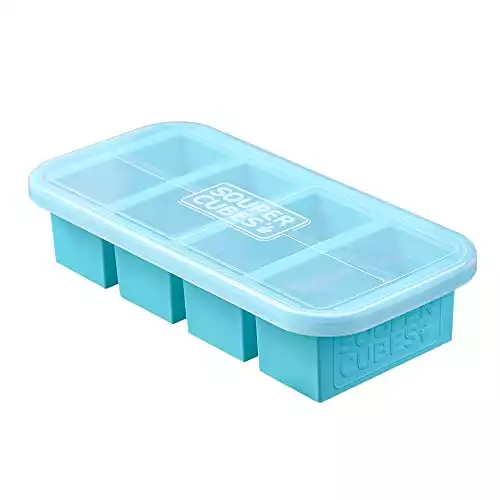


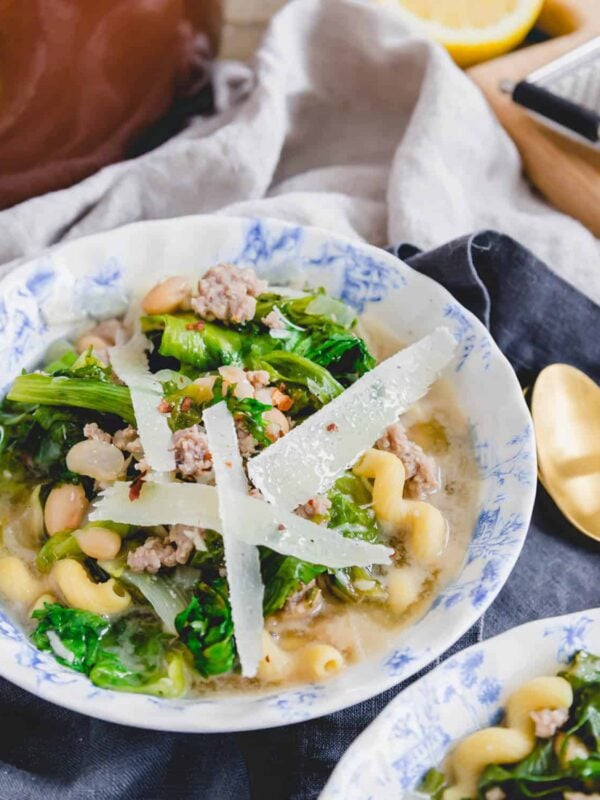
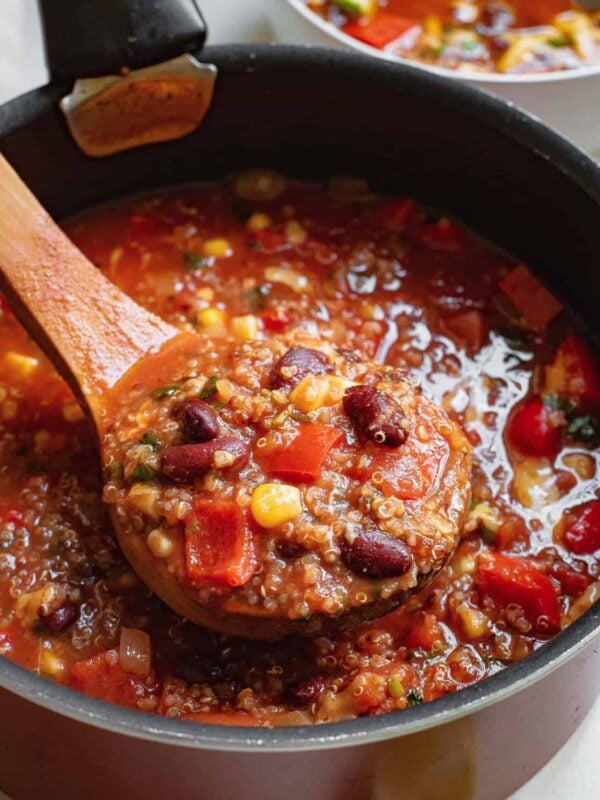
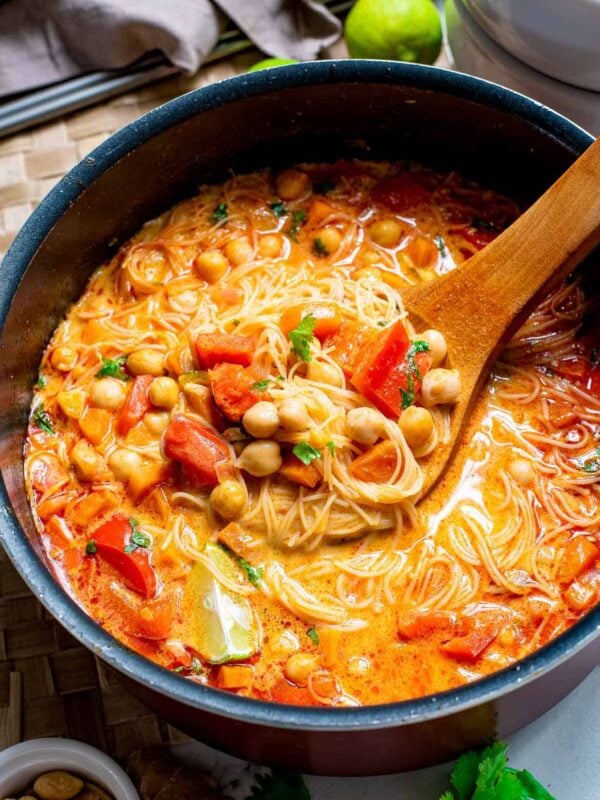








Beautiful recipe and perfect for those a little hesitant on the curry. It has a nice flavor to it and was perfect for a snowy day!
I am loving butternut recipes lately and this is one of the favourites of the ones I have tried. Will be making this one again!
The seasonings in the soup were delightful. It’s a delicious way to enjoy buttercup squash.
This soup was so creamy and delicious! We loved it. Adding to the rotation!
This is unbelievably good! So thick, creamy, and has a hint of spice. Loved every bite!
Awesome. Made it just as it was written. Some might like to take the heat up a notch. I would probably add a bit more red curry next time.
Wow what a great soup. I made it just like it said except I cooked the squash whole with seeds and the flavor was excellent. Everyone really loved it. Thanks for a Blue Ribbon soup.
Hi, The soup looks amazing! Would it be possible to sub pumpkin for the butternut squash? I just have so much pumpkin. Thanks for your advice! Anna
Any similar squash can be used so pumpkin should be fine.
The flavors in this soup work so well together. Really tasty
This is a great soup recipe! Will keep on hand this fall/winter!